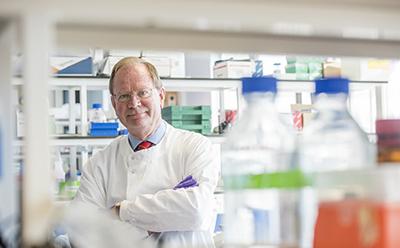Research challenge
Twenty years of respiratory research at the University of Southampton has made key discoveries on the link between transport-related air pollutants and adverse health.
Professor Stephen Holgate and Professor Susan Wilson uncovered the inflammatory effects of fresh diesel exhaust and ambient air pollution-particles on human airways. Most notably, that high exposure to nitrogen dioxide worsened the symptoms experienced by asthmatic schoolchildren prior to a viral respiratory infection.
Professor Holgate subsequently made key research contributions around air pollution for public bodies including WHO and Defra.
In 2016, he was invited to lead the publication of a Royal College of Physicians (RCP) systematic review Every breath we take: the lifelong impact of air pollution.
The report, published in the RCP’s peer-reviewed journal Clinical Medicine, was the first research to attribute around 40,000 UK deaths each year to exposure to air pollution. It found that air pollution has adverse effects across the life course – from conception to old age – which are greater in those in socioeconomic deprivation, living closer to busy roads, in poor housing, with inadequate diet, accompanying tobacco smoking and in the presence of family stress.
Impact on parliamentary debates, advocacy campaigns and legal challenges
In 2017 four House of Commons Select Committees held a joint inquiry into ‘Improving Air Quality’. Professor Holgate was invited to provide oral evidence, with the committees’ final report concluding that there was an ‘urgent need’ to ‘bring about a step change in how the problem of air quality is tackled’ and that the Government ‘cannot continue to put public health at risk’.
The Every breath we take report, alongside Professor Holgate’s expertise and research, supported three successful legal challenges (2016-2018) by environmental law charity ClientEarth in response to the UK Government breaching EU-level statutory NO2 limit values.
This compelled the Government to publish a more ambitious air pollution plan, which it did in January 2019 through its Clean Air Strategy 2019. It named London, Southampton, Birmingham, Leeds and Derby as cities where air quality was the worst in the country and mandated the introduction of local air quality improvement plans.
The five cities published new clean air strategies, with each one citing Every breath we take as evidence to support their actions.
The evidence in the report was used by the Mayor of London and other city mayors as the scientific justification of new Low Emission Zones. Professor Holgate advised on the Mayor of London’s Clean Air Strategy, with City Hall regularly citing the report’s findings and direct insights from Professor Holgate in its statements on improving air quality. This included the launch of the world’s first Ultra Low Emission Zone in April 2019, which has reduced NO2 by 44%.
Impact on Public Health England
In 2017, Professor Holgate’s research expertise was requested for an evaluation of Public Health England (PHE) undertaken by The International Association of National Public Health Institutes. His expertise led to Recommendation 4: PHE should discuss with partners ways to increase research funding for PHE in critical areas of concern such as air pollution, including expanding PHE’s ability to lead research projects and a potential new pool of funds at PHE.
Impact on a landmark legal case on the link between air pollution and the death of a child
In 2018, Professor Holgate was asked to prepare a report to support the reopening of an inquest into the death of nine-year-old girl Ella Kissi-Debrah from catastrophic asthma in 2013. Lawyers for Ella’s family argued that illegal levels of pollution from traffic on London’s South Circular Road caused the acute asthma attack that resulted in Ella’s death. The first inquest in 2014 did not mention air pollution.
Drawing upon his research, Professor Holgate’s evidence incriminated exposure to unlawful levels of air pollution as a major contributory factor to Ella’s asthma and cause of death.
The new evidence led to a new inquest, in which Professor Holgate gave oral and written scientific evidence. In December 2020, the coroner made legal history by ruling that air pollution was a cause of Ella’s death.
The ruling was the first of its kind in the UK and received widespread global media attention.
